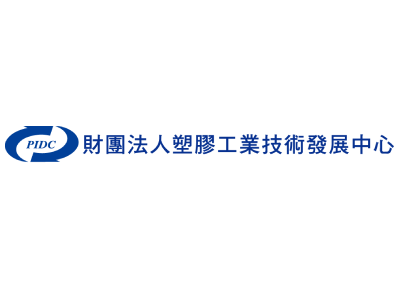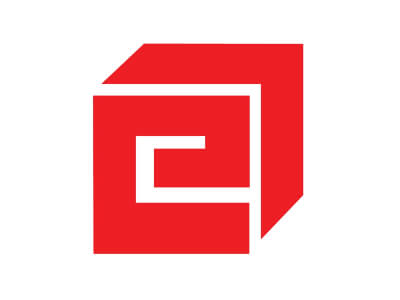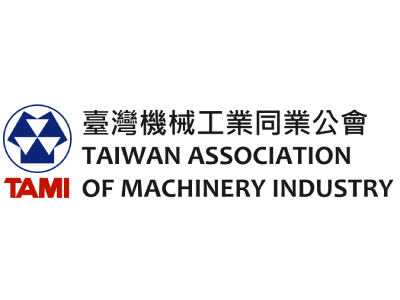
Plastics Industry Development Center
Plastics Industry Development Center (PIDC) was established and funded by the government and plastics industries in 1993. For the past 30 years, PIDC has been providing a wide range of services and assistance such as technology R&D, product verification, sustainability management counseling, talent training, etc.
The core services of PIDC are to assist in the processing of high-value plastic materials and related application technologies, providing manufacturers with the ability to carry out R&D, design, processing, and international validation and analysis. This enables companies to implement the vertical integrations from the application end of the industry to the development of raw materials and then to the development of complete solutions. To enhance the competitiveness of the industry, PIDC will guide the plastic industry and transform the industries that use plastics towards sustainability and innovations.
Services in PIDC:
Technology R&D - “GRASS” is PIDC’s core of intense materials research and development. We have developed next-generation high-value plastics by combining five elements of value: green materials, recycled materials, advanced composites materials, smart materials and safe plastics.
Analytical Verification - PIDC Verification Labs comply with international standards to provide testing and verification services for polymer-plastics materials, biodegradable plastics and customized products, etc.
PIDC’s Dr. Plastic - It provides services for product life cycle analysis and examinations for the root causes of product failures. Dr. Plastic Labs would also implement practical solutions and conduct regular checks for follow-up actions.
Sustainability - PIDC provides corporate sustainability counseling, environmental footprint counseling, sustainability design counseling and green marketing counseling.
Talent Training - PIDC organizes training courses, vocational evaluation, marketing promotion and publications for our clients.
Biomedical Technology - PIDC builds the best one-stop medical device development service that includes medical device design and development ,verification and validation, regulatory counseling and talent training and promotion matching.
Technology Transfer & Patent Licensing - PIDC has produced many key innovations and transfers the technology to proper industries every year.
Asia-Pacific Composite Technical Cooperation Center:
The Asia-Pacific Composite Technical Cooperation Center, a collaboration between PIDC and ZwickRoell, was completed in 2022 and officially commenced operations in 2023. The laboratory is equipped with the composite testing machine from ZwickRoell, providing the necessary testing capabilities for domestic industries in Taiwan such as electric vehicles, wind power generation, and aerospace in the field of composites.

Taiwan Packaging Association
I. History and Objectives
The Association was first established on November 1, 1965 as “Chinese Taipei Product Packaging Institute”. Our former Presidents are Tao-Ken Wu, Chu-Ta Chou, Chang-Shu Chao, Ssu-Chin Kao, Yi-Chun Fu, Yun-Teng Lin, and Kuan-Hsiung Wu. The Association’s aims are researching the knowledge and technology of product packaging, developing packaging equipment industry, improving packaging methods, and promoting product channels. After operating under the institute’s original name for 11 sessions, the Association was reorganized as a corporation and renamed to “Chinese Taipei Packaging Association” in September 1988. Its current name, “Taiwan Packaging Association”, was adopted in June 2015.
II. Services
1.Hold the annual TAIPEI PACK with the Taiwan External Trade Development Council.
2.Publish the annual purchaser guidelines for TAIPEI PACK.
3. Assist members in obtaining subsidies for overseas expos.
4.Participate in all kinds of local and overseas packaging expos and sales events.
5.Hold issue discussions and educational workshops regarding packaging design.
6.Provide consulting services for operations and management, technical upgrades, and innovative consultation to the members.
7. Assist members in matching business opportunities and marketing services.
8.Conduct expert committees based on their respective functions, and provide expo, education, and networking information from time to time.

Taiwan Association of Machinery Industry
Introduction
TAMI (Taiwan Association of Machinery Industry) was founded in October 1945 and originally named “Taiwan Association of Iron Industry”. It was then renamed “Taiwan Provincial Association of Iron Industry”. In May 1947, the organization reshuffled and became “Taiwan Provincial Confederation of Machinery Industry”. On April 28th 1948, the name TAMI was officially established and used as Taiwan Association of Machinery Industry from November 1st 2013.
In 1999, TAMI was certified as an ISO9000 organization by the Bureau of Standards, Metrology & Inspection of the Ministry of Economic Affairs. Later in 2018, it was also certified with the “International ISO9001: 2015 Quality Management System "The core policy of TAMI's services follows" Upgrading Our Service and Pursuing Collective Benefits for Our Members".
In recent years, TAMI has intensively conducted numerous machinery export promotion delegations, as well as trade fairs in domestic and international market places.
“TAMINet” was established as a multilingual website geared towards machinery promotion. The website is available in Mandarin Chinese, English and Japanese. This easy to use website is essential in helping company members to offer customer quotes and technical information with just a few clicks of the mouse. “TAMINet” is a business platform that provides machine builders and the satellite companies with the ability to interact each other for sales cooperation and technical discussion. It is also a smart manufacturing forum for both buyers and sellers who wish to acquire up-to-date market information, CE conformity guidance and so on.
“TAMI” greatly helps to increase the competitiveness of all its 2,700 company members in the international market place.
TAMI's Functions
Protection of members' legal rights.
Sponsorship of members' general interest activities.
Assistance in licensing and certification of members and certification of members' bids in public tenders.
Involvement in the formulation of economic policy and business laws and regulations by the government.
Performance of general services for members, business groups and public officials on request.
Investigation, research and compilation of information on domestic and foreign machinery industries.
Investigation on materials and energy resources for machinery manufacturers and coordination of the related resources for members.
Promotion of technical cooperation in the industry.
Compilation of information on marketing and assistance in marketing for members.
Support in exhibiting members' products and encouragement of intercommunication and information sharing among members.
Research of labor productivity, sponsoring and promoting technical training and seminars.
Investigation of members' business practices and services.
Maintenance and registration of data on members and their representatives.
Arbitration in member or labor-management disputes.
Participation in social activities.
Fulfilling other duties required by law or government authorities.
The Organization
1. Members’ Representative Assembly:
The Representatives are recommended and elected by all members and are allowed to select their Meeting Representatives in each area. The Assembly consists of all elected Meeting Representatives, whom encompass the supreme authority of TAMI.
2. Board of Directors and Supervisors:
27 members from the Board of Directors and 9 members from the Board of Supervisors are elected by Meeting Representatives. Furthermore, 9 Executive Directors and 3 Executive Supervisors are elected respectively by the members of their Boards. The Chairman is elected by the 9 Executive Directors, who represent the Assembly and are in charge of its general affairs. Among the 3 Executive Supervisors, one must be chosen as the Convener of Supervisors.
3. Professional Committees:
There are 29 Professional Committees in TAMI, such as Machine Tools, Plastics & Rubber Machinery, Textile Machinery and the Parts & Components Committee. Each Committee is lead by a Convener and 1 to 6 Deputy Conveners. The Convener from each Committee is appointed by the Chairman; whereas the Deputy Conveners are selected by the Committee members, who are then authorized by the Chairman.
The main principle of Professional Committees is to increase the common benefits of all members and to support members in technical innovation and research. The functions include applying government sponsored projects to boost overall machine quality and performance, creating export markets, maintaining market order, organizing delegations for overseas promotion, participating in all major trade fairs with Taiwan External Trade Development Council (TAITRA), helping to create and foster better financial facilities, conducting factory visits, technical seminars and publishing magazines.
4. Organizational Structure:
The Chairman appoints the President as the highest administrative officer, along with the Vice President to operate TAMI's ro
